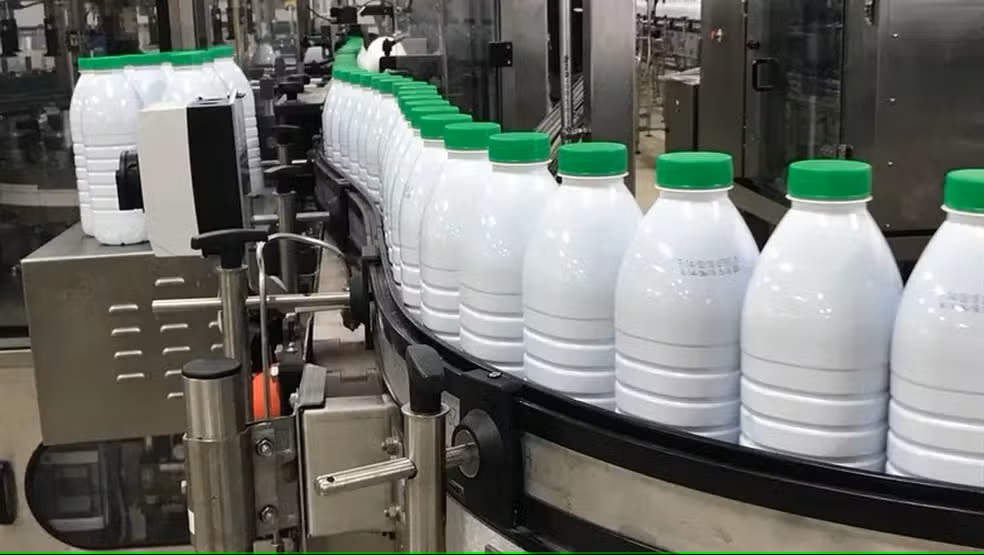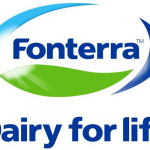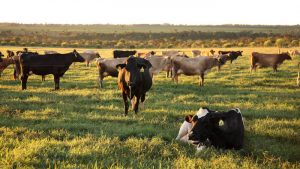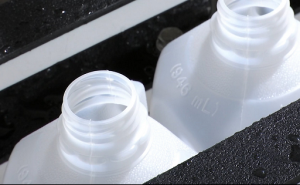
Lactalis Brasil led the pack with 2.7 billion liters, up 1.3% from 2023.
Seventeen of Brazil’s largest dairy processors collected a combined 10.8 billion liters of milk in 2024, a slight increase of 0.7% from the previous year, according to data from the Brazilian Association of Milk Producers (Abraleite).
The pace of growth lagged behind the industry average. A quarterly survey by the Brazilian Institute of Geography and Statistics (IBGE), which consolidates data from 1,927 inspected dairy plants, showed nationwide milk collection rose 3.1% last year, reaching 25.4 billion liters.
“Production increased in 2024, and the ranking shows individual growth and productivity gains among better-structured producers,” said Abraleite President Geraldo Borges. He expects the industry to perform similarly in 2025. “We anticipate a relatively stable scenario, although imports continue to grow,” he added.
Considering both industrial and artisanal output, Brazil’s total milk production rose about 3% last year, reaching 35.4 billion liters, according to Abraleite. Consumption also increased, supporting farmgate milk prices. According to the Center for Advanced Studies in Applied Economics (CEPEA), producers saw an average real gain of 1.9%, with prices reaching R$2.6362 per liter.
Lactalis Brasil topped the rankings with 2.7 billion liters collected in 2024, a 1.3% increase over 2023. Patrick Sauvageot, president of Lactalis Brasil, said the sector’s growth potential could be higher but noted that imports are intensifying competition.
Brazilian milk imports rose 5% in 2024 to 2.3 billion liters, according to the Brazilian Agricultural Research Corporation’s Milk Intelligence Center (CILeite). In January 2025, imports dipped 2.18% to 208.4 million liters but rebounded in February with a 16.7% increase to 216.2 million liters, compared to the same months in 2024.
“We aim to boost production and competitiveness through long-term contracts with cooperatives and producers,” Mr. Sauvageot said. He expects a “slight increase in milk supply in the market” in 2025.
Lactalis Brasil rejoined the survey after a six-year absence. This edition included 17 companies and cooperatives. Italac, Alvoar Lácteos, Vigor (Lala), Laticínios Damare, Cooperativa Santa Clara, and Tirol did not participate.
Piracanjuba, previously listed as Laticínios Bela Vista, ranked second with 1.9 billion liters collected in 2024, up 9.5% from the prior year. Unium—an alliance of the Frisia, Castrolanda, and Capal cooperatives—came in third with 1.4 billion liters, a 2.6% year-over-year decline.
Nestlé ranked fourth with a modest 0.4% increase in milk collection, reaching 1 billion liters. It was followed by the Central Cooperative of Rural Producers (CCPR), a supplier to Lactalis, which saw a 4.9% drop to 854 million liters.
Centroleite posted the largest gain, with a 15.2% increase to 269.8 million liters, followed by Tirolez, which grew 11.7% to 305.3 million liters. The steepest declines were seen at Frimesa (down 6.2%) and CCPR (down 4.9%).
Marcel de Barros, CEO of Tirolez, said the company invested in innovative products and improved commercial execution while opening a new plant in Caxambu do Sul (Santa Catarina). As a result, sales posted double-digit growth. “For 2025, we aim to maintain double-digit expansion and continue gaining market share,” he said.
According to Abraleite, milk sourced from partner producers grew 2% to 9.4 billion liters, although the number of supplying farms fell 2.9% to 48,700. Average production per farm rose 6.5% in 2024, reaching 541 liters per day.
You can now read the most important #news on #eDairyNews #Whatsapp channels!!!
🇺🇸 eDairy News INGLÊS: https://whatsapp.com/channel/0029VaKsjzGDTkJyIN6hcP1K





















